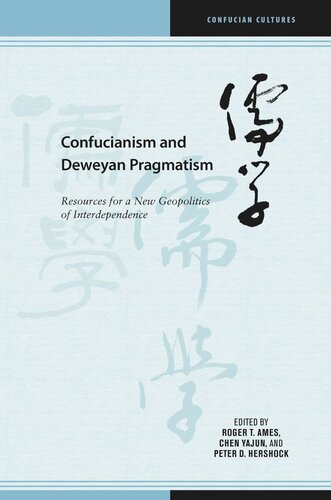

Most ebook files are in PDF format, so you can easily read them using various software such as Foxit Reader or directly on the Google Chrome browser.
Some ebook files are released by publishers in other formats such as .awz, .mobi, .epub, .fb2, etc. You may need to install specific software to read these formats on mobile/PC, such as Calibre.
Please read the tutorial at this link: https://ebookbell.com/faq
We offer FREE conversion to the popular formats you request; however, this may take some time. Therefore, right after payment, please email us, and we will try to provide the service as quickly as possible.
For some exceptional file formats or broken links (if any), please refrain from opening any disputes. Instead, email us first, and we will try to assist within a maximum of 6 hours.
EbookBell Team

5.0
70 reviewsOver the past generation, the rise of East Asia and especially China, has brought about a sea change in the economic and political world order. At the same time, global warming, environmental degradation, food and water shortages, population explosion, and income inequities have created a perfect storm that threatens the very survival of humanity. It is clear now that the Westphalian model of individual sovereign states seeking their own self-interest will not be able to respond effectively to this win-win or lose-lose crisis. In this volume, a cadre of distinguished scholars comes together to reflect on Confucianism and Deweyan pragmatism as possible resources for a new geopolitics that begins from an ontology of interdependence and recognizes the irreducibly ecological nature of the human experience at every level.
Both Confucian and Deweyan traditions emphasize the primacy of experience, the importance of vital relationality, and the moral roots of good governance. The potential benefits of conceptually blending the two are many. Indeed, the contemporary Chinese philosopher Tang Junyi provides us with a cosmological understanding of the “idea” of Confucianism that, in parallel to Dewey’s “idea” of democracy, can enable us to anticipate the core values, if not the specific contours, of a “Confucian democracy.” Just as Dewey’s “idea” of democracy is his vision of the flourishing communal life made possible by the contributions of the uniquely distinguished persons that constitute it, Tang Junyi’s Confucianism is a pragmatic naturalism directed at achieving the most highly integrated cultural, moral, and spiritual growth for the individual-in-community. In both, we find an affirmation of communal harmony as a process “starting here and going there” through which those involved learn together to do ordinary things in extraordinary ways. Just such a cosmological understanding of democracy is one way of describing what will be needed to address the many predicaments characterizing the environmental, cultural, socioeconomic, and political dynamics of the twenty-first century.